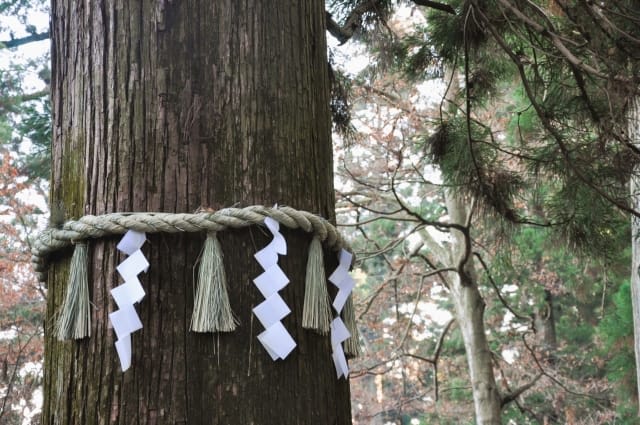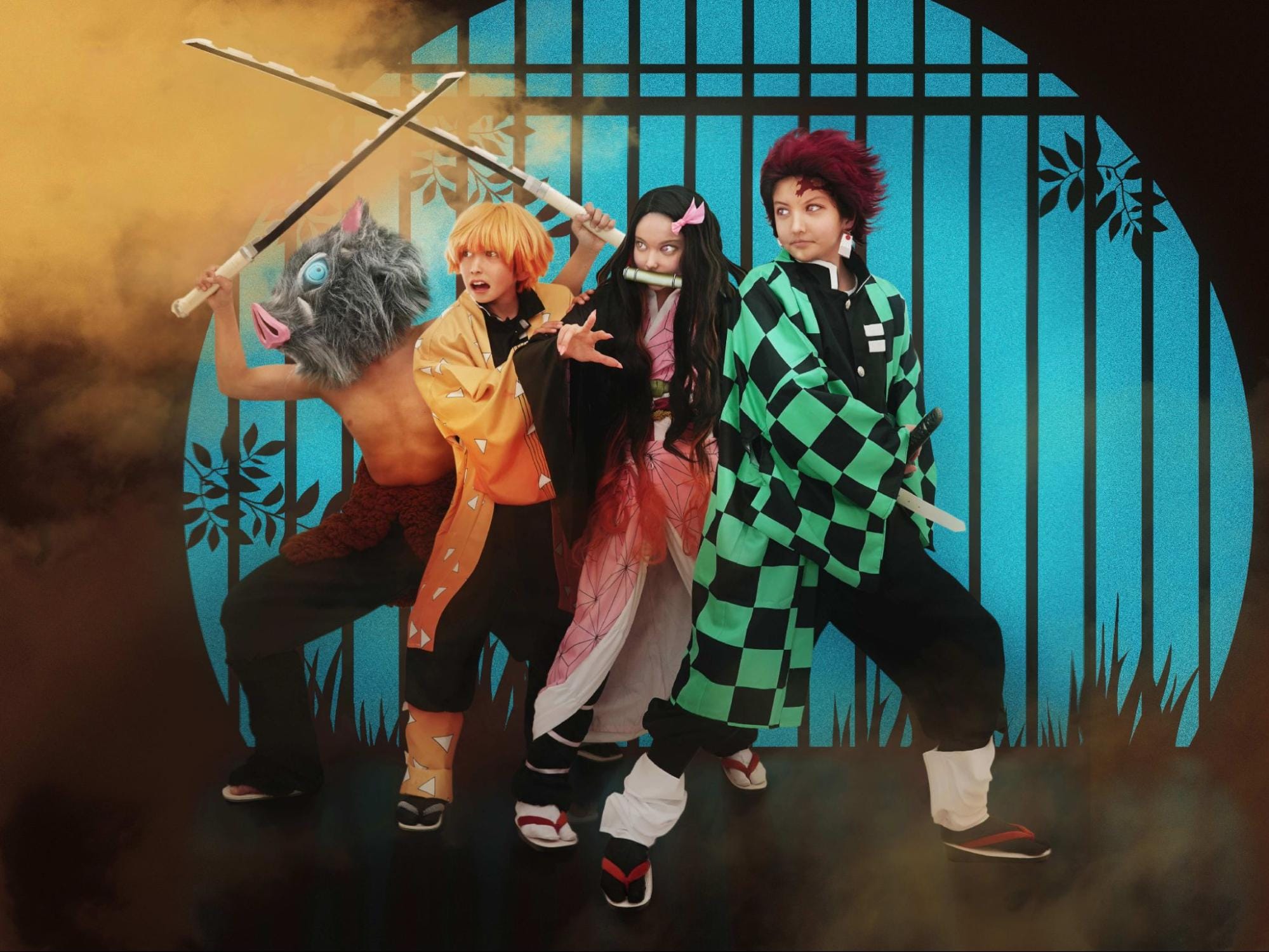Tokyo Spiritual Hotspots 2026: Your Ultimate Guide to Sacred Sites & Hidden Spots
This article is inspired by my own wish to find a comprehensive guide to events at travel destinations. All the events I'm featuring here are ones that I personally recommend to international visitors, based on my experience born and raised in Shibuya.
Since Tokyo has so many must-see spots that it can be overwhelming, you need to plan efficiently to cover all the attractive locations. That's why Magical Trip offers various Tokyo tours guided by locals.
In particular, our "Tokyo Bar Hopping Night Tour in Shinjuku" (Ranked #1 among all TripAdvisor tours in 2024) and "Shibuya Bar Hopping Night Tour in Tokyo" take you to local favorites that tourists rarely discover on your own. When planning your Tokyo trip, include a Magical Trip tour in your itinerary.

Introduction
Tokyo has developed as the center of Japan for more than 400 years. It is said that many temples and shrines were built as part of the defensive urban planning around Edo (Tokyo's former name) castle town.
Currently, about 1,500 shrines remain in Tokyo. Each has various histories and benefits, and many have become popular as sacred Spiritual Hotspots and tourist attractions.
In this article, I will share carefully selected Spiritual Hotspots that I've personally visited and experienced their charm.
Shrines and Temples are the Main Spiritual Hotspots in Japan
Shrines exist throughout Japan. From torii gates in city streets to small shrines on mountaintops, landscapes with shrines are very familiar to Japanese people while being uniquely Japanese and not seen elsewhere.
In Japan, people sensed the work of gods in nature and realized the preciousness of life. Shrines were born as places to worship these gods.
Shrines where you can feel the sacred power of nature have been spiritual anchors for Japanese people since ancient times.
Tokyo Spiritual Hotspots 2026: 7 Must-Visit Locations Selected by the Author
Meiji Jingu
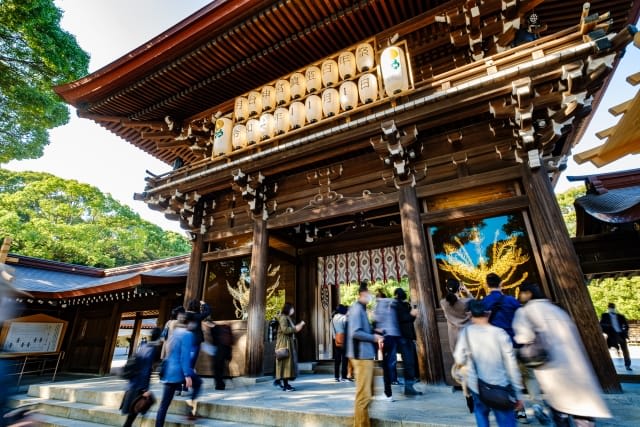
Meiji Jingu was established to commemorate the souls of Emperor Meiji, who passed away in 1912, and the Empress Consort who followed him in death.
The shrine is surrounded by a lush artificial forest called "Eternal Forest," which heals the visitors who come to pray daily.
It has become established as a popular power spot because it's filled with a sacred atmosphere that's hard to believe is adjacent to fashion centers like Harajuku and Omotesando.
What has become quite famous in recent years is the spring well called "Kiyomasa's Well." It is said that visiting here "purifies negative energy and increases good fortune" because water continues to spring forth at a rate of 60 liters per minute without interruption.
Also, the large tree called "Meoto Kusu" on the left side of the main shrine is cherished as a symbol that brings good relationships and marital harmony.
Address: 1-1 Yoyogi Kamizono-cho, Shibuya-ku, Tokyo
Hours: Opens at sunrise, closes at sunset
Closed: Never
Phone: 03-3379-5511
Official website: https://www.meijijingu.or.jp/
Tokyo Daijingu Shrine
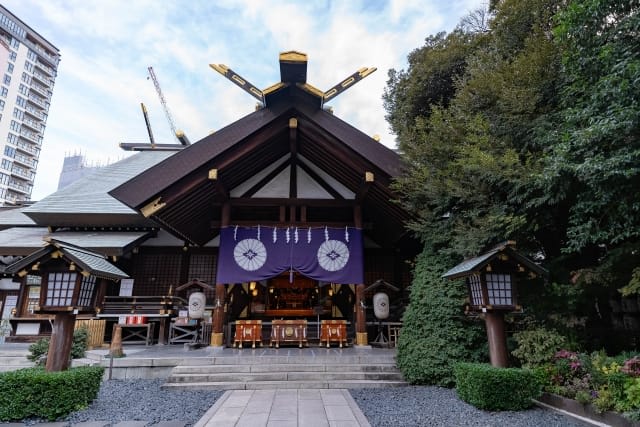
It is said that there are Yaoyorozu no kami (the collective name for gods in Shinto) in Japan, and Tokyo Daijingu Shrine enshrines "Amaterasu Ōmikami," the sun goddess considered most sacred among them, as its main deity.
It is affectionately known as "Tokyo's Oise-sama" (called this because it enshrines the same deity as Ise Jingu in Ise City, Mie Prefecture) and is counted among Tokyo's five major shrines as a prestigious shrine.
It is particularly known for its great benefits for matchmaking and is popular as a power spot for finding love. There are over 40 types of charms related to love, including lilies of the valley which have the flower language "good fortune will come," and key motifs that open the hearts of loved ones.
Also, the over 100-year-old chinquapin tree on the grounds is a power tree that is said to be effective if you set its photo as your mobile phone wallpaper. Be sure to capture it with your camera when you visit.
Address: 2-4-1 Fujimi, Chiyoda-ku, Tokyo
Hours: 6:00-21:00
Closed: Never
Phone: 03-3262-3566
Official website: https://www.tokyodaijingu.or.jp/
Kanda Shrine
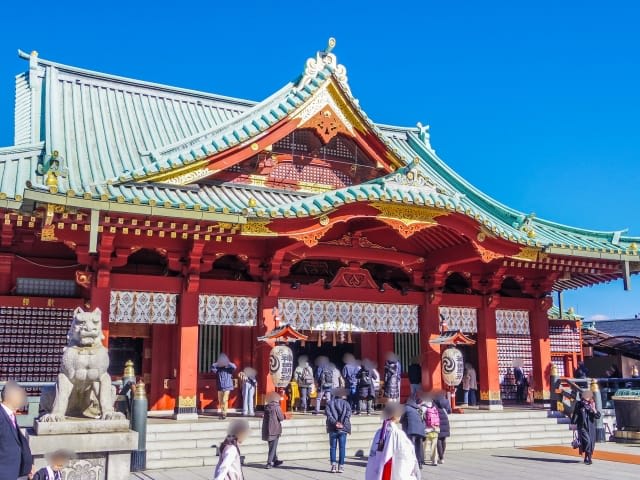
Kanda Shrine is known for the "Kanda Festival," one of the three major festivals of Edo, and is affectionately called "Myojin sama" by locals. It's nationally famous for offering various benefits including business prosperity, good relationships, victory, and academic success.
Since its establishment in 730, it boasts a history of approximately 1,300 years, and even renowned warlords visited during the Sengoku period (late 15th to late 16th century).
It is said that the shrine was particularly beloved by shogun Tokugawa Ieyasu and became familiar to common people as a shrine protecting all of Edo (present-day Tokyo). Within the grounds, various deities are enshrined, including Ebisu for business prosperity, Daikoku for matchmaking, and Masakado for protection against disasters.
The beautiful vermilion main hall, which survived both the Great Kanto Earthquake and Great Tokyo Air Raid, is Kanda Shrine's symbol. One of Tokyo Spiritual Hotspots 2026 worth visiting, standing in front of this main hall alone can recharge your energy, making it one of my favorite spots as well.
Address: 2-16-2 Sotokanda, Chiyoda-ku, Tokyo
Hours: 24 hours
Closed: Never
Phone: 03-3254-0753
Official website: https://www.kandamyoujin.or.jp/
Sensoji Temple
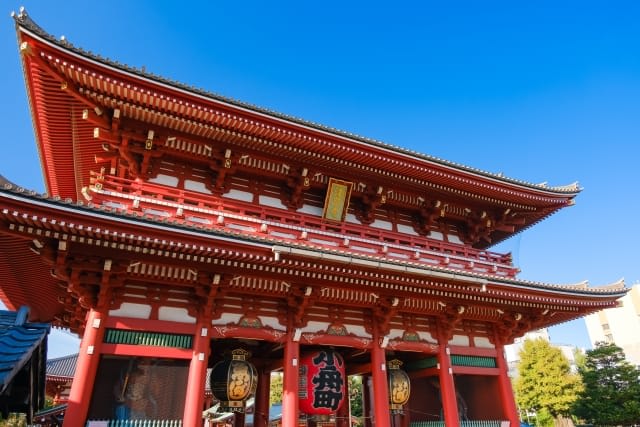
Sensoji Temple is renowned as Tokyo's oldest temple, located in Asakusa, one of Tokyo's premier tourist destinations. It attracts more than 30 million visitors from Japan and abroad annually. The Kaminarimon Gate, which serves as Sensoji Temple's main entrance, features a massive lantern and offers photogenic charm whenever you visit.
After passing through the Kaminarimon Gate, beautiful and impressively powerful structures such as the five-story pagoda, Niomon Gate, and main hall continue throughout the grounds. The Gohonzon (the most cherished object of faith in Buddhism), Shokanzeon Bosatsu, is said to appear before all who seek compassion. Therefore, it is believed that this place can fulfill all kinds of wishes, not limited to specific benefits.
Address: 2-3-1 Asakusa, Taito-ku, Tokyo
Hours: Main Hall 6:00-17:00 (October-March from 6:30), Grounds 24 hours
Closed: Never
Phone: 03-3842-0181
Official website: https://www.senso-ji.jp/
Asakusa Cultural Walk & Matcha Making Tour
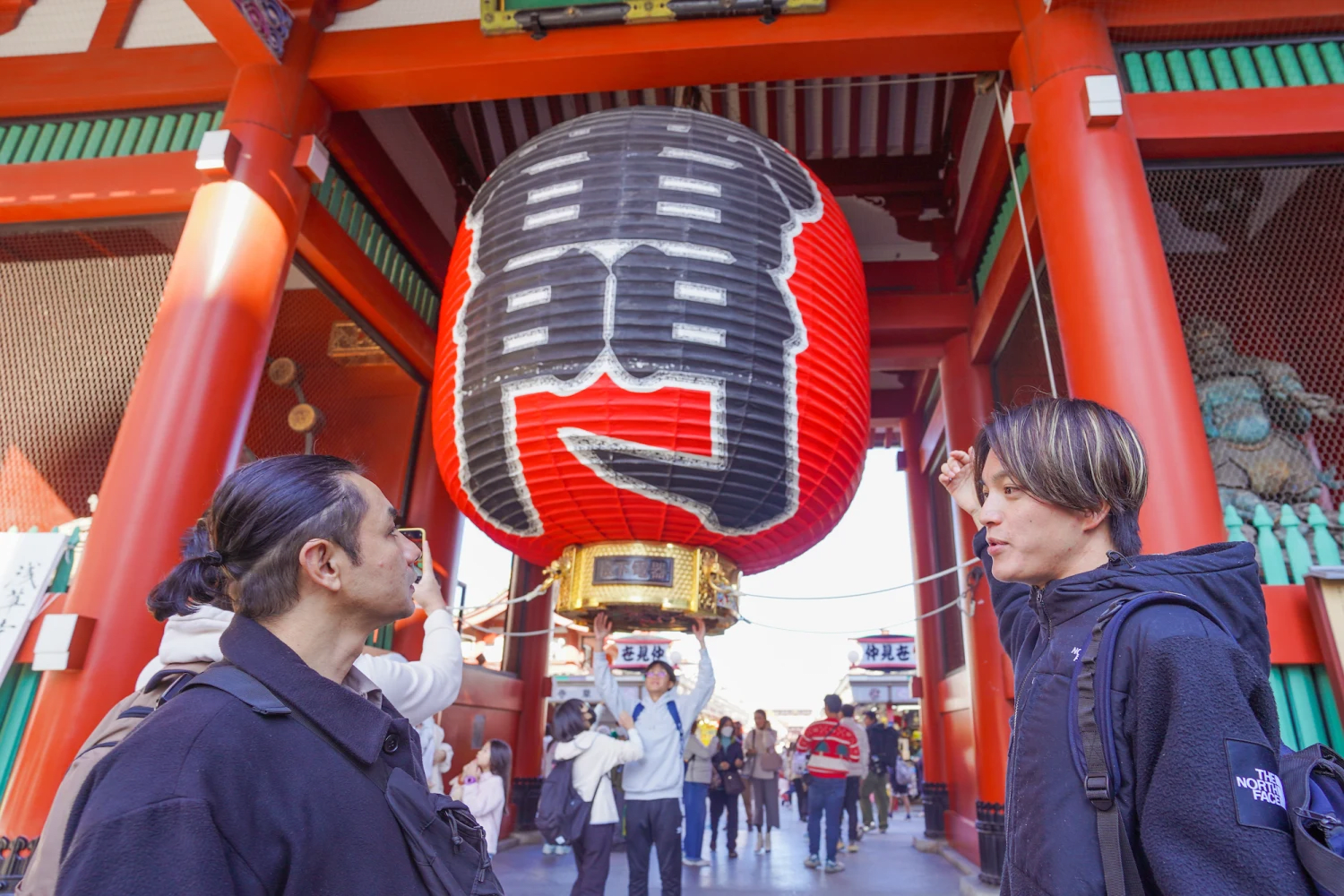
This is a walking tour that efficiently covers Asakusa's tourist spots in three hours. A friendly local guide will carefully explain the culture of this town, including Japanese temple traditions, local people's lives, what to buy and eat in Asakusa.
The tour begins at Sensoji Temple, a must-visit in Asakusa, and includes an authentic matcha-making experience in a Japanese tea room. Another highlight of Tokyo Spiritual Hotspots 2026 is learning how to make the local soul food Monja yaki (an iron plate dish made by mixing flour loosely dissolved in water with broth and ingredients) while enjoying its taste.
Meeting point: In front of the police box at Sensoji Temple Kaminarimon Gate
Tour area: Asakusa
Start time: 11:00
Ono Terusaki Shrine
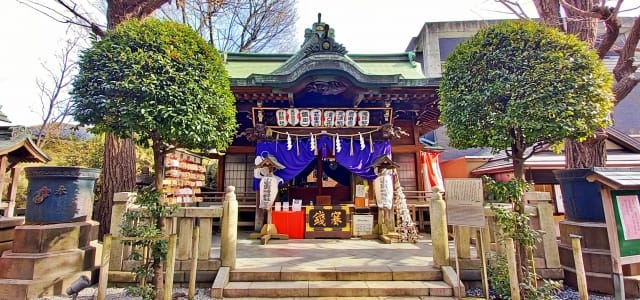
Because the enshrined deity was a scholar and poet who actually lived in the 9th century, this shrine is said to bring benefits to academics, performing arts, and work endeavors. Long ago, a novice actor diligently visited here and made wishes "to succeed in the entertainment world." After some time, that wish was fulfilled, and the actor was cast as the lead in a nationally beloved film, becoming the face of that production and protected throughout their lifetime, according to this anecdote.
For this reason, many entertainers, musicians, and artists visit seeking success in their work. As a creator myself, I have also pressed my hands together in prayer, wishing "to be able to write even more wonderful text."
There is also a Fujizuka (a mound built to resemble Mount Fuji) related to the mountain worship of Mount Fuji, and if you come here, you will surely receive various powers. As one of Tokyo Spiritual Hotspots 2026, this shrine offers unique cultural and spiritual experiences for visitors.
Address: 2-13-14 Shitaya, Taito-ku, Tokyo
Hours: 9:00-16:00
Closed: Never
Phone: 03-3872-5514
Official website: https://onoteru.or.jp/
Koami Jinja
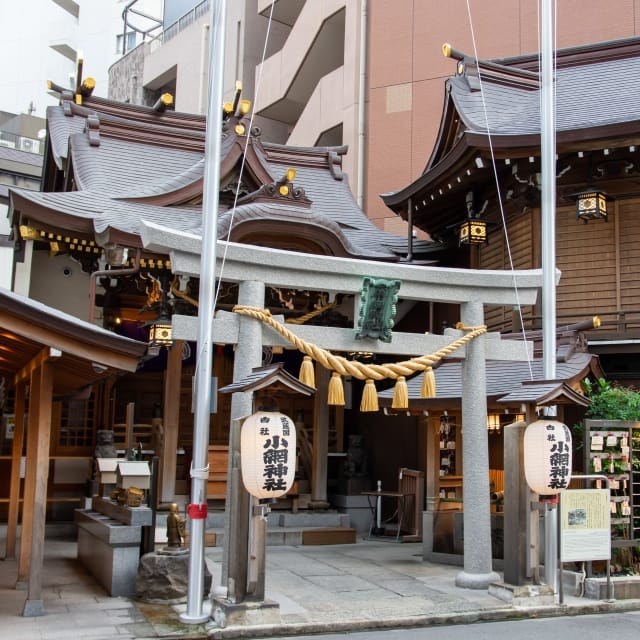
"Koami Jinja" has long been enshrined in the center of Japan and is deeply revered as the "deity of strong fortune."
Its history dates back 600 years, when it was built according to a divine message from heaven during a time when epidemics were spreading and causing suffering to the people. Soon after, the plague subsided, and since then it has been worshipped as the Ujigami (guardian deity) protecting the area.
Also during World War II, a miracle occurred where all soldiers who received amulets from this shrine returned home safely. Because of these events, it is believed to bring benefits for strong fortune and warding off misfortune.
Furthermore, Koami Jinja is also famous as the grove of Tokyo Zeniarai Benten. There is a "Money washing well" in the shrine grounds, and it is said that washing money in this well will bring financial fortune.
In this solemn place quietly standing amid the hustle and bustle of Nihonbashi, the center of finance and economy, please feel its mystical power. Among Tokyo Spiritual Hotspots 2026, this shrine is particularly popular with visitors seeking financial blessings.
Address: 16-23 Nihonbashi Koami-cho, Chuo-ku, Tokyo
Hours: 9:00-17:00
Closed: Never
Phone: 03-3668-1080
Official website: https://www.koamijinja.or.jp/
Mt. Takao
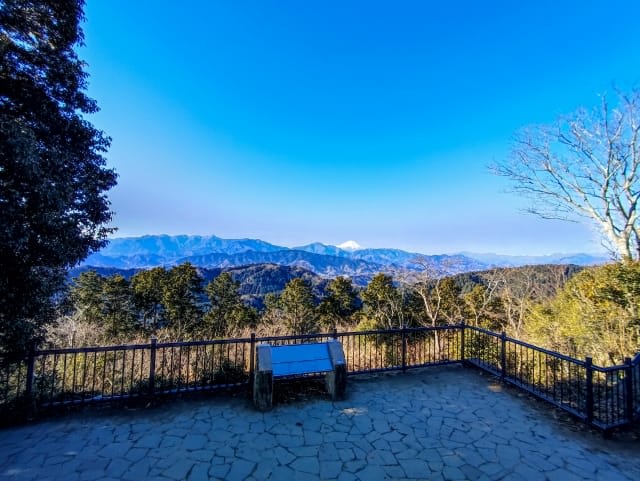
In fact, Mt. Takao boasts the world's highest number of climbers, with 3 million visitors annually. Located in Hachioji City, Tokyo, its favorable location close to the city center and well-maintained environment help attract many tourists throughout the year.
It has long been considered a sacred mountain for Shugendo practices and has been an object of worship. "Shukendō" is a uniquely Japanese religion born from a mixture of nature worship, Buddhism, and Shinto. For ancient Japanese who considered mountains as sacred domains where gods dwell, it would not be an exaggeration to say that virtually every surrounding mountain was a place for Shugendo practice.
Mt. Takao is the most accessible place to experience such "mountain religion" in contemporary society. It is even certified as a three-star tourist destination in the Michelin Guide, and the magnificent view from the summit is worth seeing. Among Tokyo Spiritual Hotspots 2026, Mt. Takao offers both spiritual significance and natural beauty for tourists seeking authentic Japanese cultural experiences.
Address: Takao-machi, Hachioji City, Tokyo
Nezu Shrine
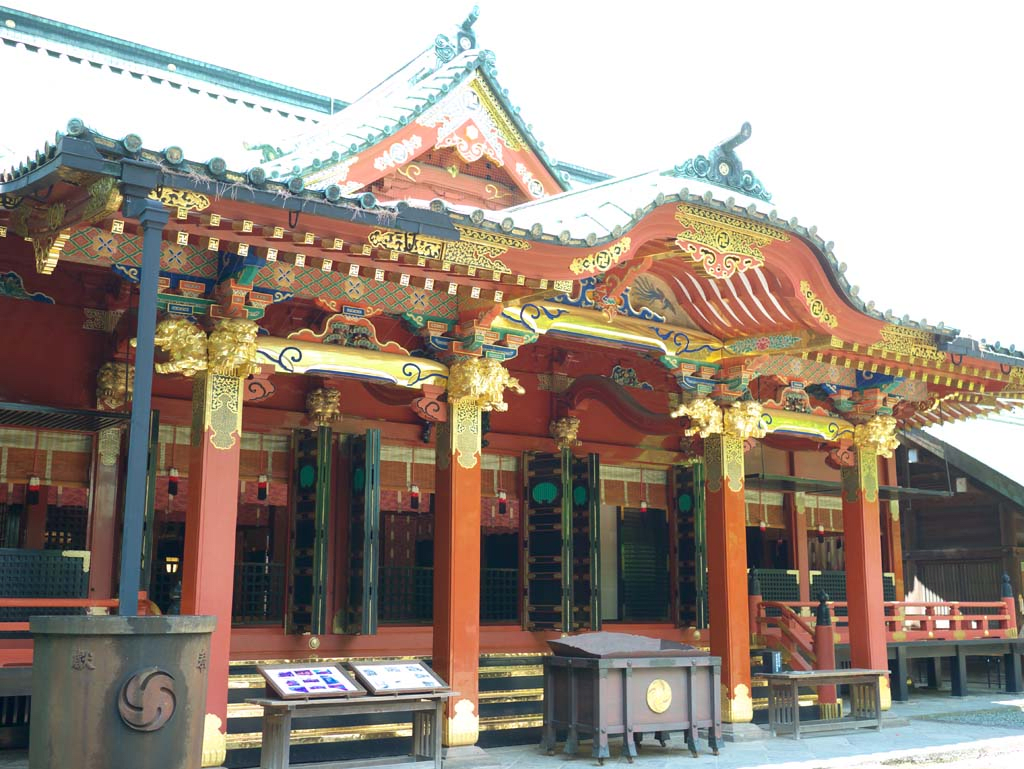
Nezu Shrine is a prestigious ancient shrine with a 1900-year history. It is said to have been founded by Yamato Takeru, who appears in Japan's oldest historical records.
The shrine buildings that exist today are approximately 400 years old and were built in the Japanese shrine architectural style called Gongen-zukuri. These structures have been designated as Important Cultural Properties of Japan.
Nezu Shrine is also famous for being loved by many great Japanese literary figures including Natsume Soseki and Mori Ogai.
Within the grounds of Nezu Shrine, there are two additional shrines: "Otome Inari Shrine" and "Komagome Inari Shrine." The "Senbon Torii" at Otome Inari Shrine is particularly popular as a magical photo spot. Walking through the neatly arranged rows of vivid vermilion torii gates is said to ward off evil spirits.
As one of Tokyo's Spiritual Hotspots 2026, Nezu Shrine has gained attention as a power spot for matchmaking because Otome Inari Shrine enshrines a female deity and Komagome Inari Shrine enshrines a male deity.
Address: 1-28-9 Nezu, Bunkyo-ku, Tokyo
Hours: 6:00-17:00 (varies by season)
Closed: Never
Phone: 03-3822-0753
Official website: https://nedujinja.or.jp/
To enjoy the retro town with traditional streetscapes, it's recommended to have a local guide who knows Yanaka inside out
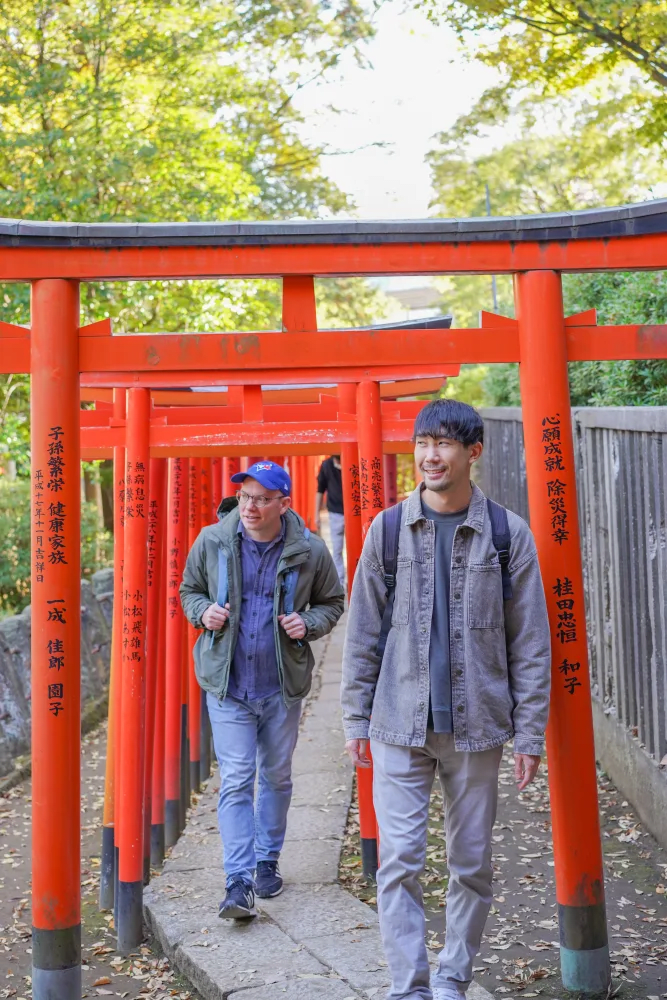
The Yanaka area where Nezu Shrine is located is one of the overwhelmingly traditional districts where old-fashioned Japanese streetscapes remain. This tour allows you to immerse yourself in the lives of local people in this insider's downtown area.
While observing the daily commercial activities in the market, you can enjoy local snacks and street food in the back alleys.
You're guaranteed to be fully satisfied with the tour's content, which includes painting lucky cat figurines at a café housed in a traditional Japanese home, visiting the Nezu Shrine with its beautiful vermilion torii gates, and more.
Meeting point: Tokyo Metro Nezu Station, Exit 1 (ground level)
Tour area: Yanaka
Start time: 11:30
3 Recommended Power Spots Easily Accessible from Tokyo
Chichibu Three Shrines
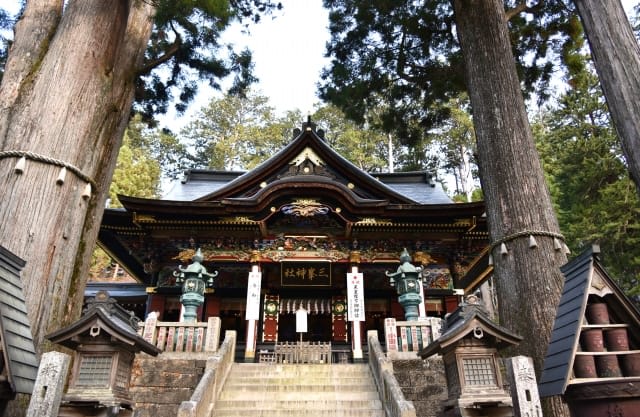
The Chichibu Three Shrines located in the Chichibu region of Saitama Prefecture adjacent to Tokyo are widely known as power spots. Among Tokyo Spiritual Hotspots 2026, these sacred sites—"Chichibu Shrine," "Mitsumine Shrine," and "Hodosan Shrine"—all possess a solemn atmosphere.
Particularly notable is Mitsumine Shrine, situated at an altitude of 1,100m, where depending on weather conditions, you can encounter spectacular views of a sea of clouds. You can enjoy the dreamlike atmosphere enveloped in mist and feel its unique spiritual power.
At Chichibu Shrine, which enshrines the god of wisdom, the beautiful main hall and its artistic carvings are worth seeing. The large stone in front of the Inari Shrine within the grounds is called "Ikiishi" and is said to be where gods descend.
At Hodosan Shrine, there is a legend that Yamato Takeru, an ancient Japanese hero, purified himself at this shrine, and the water from that time still exists within the shrine grounds.
Mitsumine Shrine
Address: 298-1 Mitsumine, Chichibu City, Saitama Prefecture
Hours: 9:00-17:00
Closed: Never
Phone: 0494-55-0241
Official website: https://www.mitsuminejinja.or.jp/
Chichibu Shrine
Address: 1-3 Banba-cho, Chichibu City, Saitama Prefecture
Hours: Shrine gates open 5:00-20:00 (Winter from 6:00)
Closed: Never
Phone: 0494-22-0262
Official website: https://www.chichibu-jinja.or.jp/
Hodosan Shrine
Address: 1828 Nagatoro, Nagatoro-machi, Chichibu-gun, Saitama Prefecture
Business Hours: April-September/8:30-17:00, October-March/8:30-16:30
Closed: Never
Phone Number: 0494-66-0084
Official Website: https://www.hodosan-jinja.or.jp/
Mt. Fuji
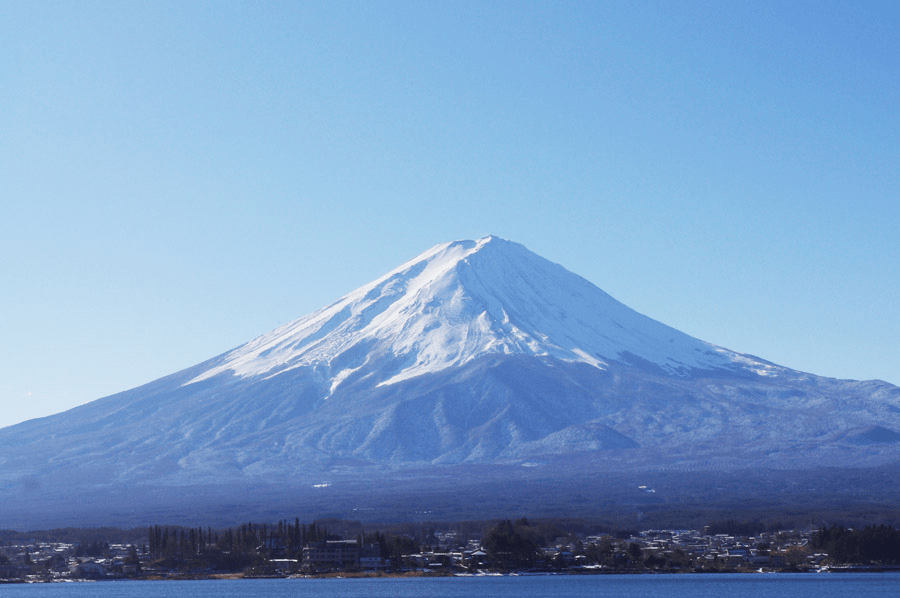
Mt. Fuji, registered as a World Heritage site, is needless to say Japan's representative symbol and has been a sacred place for mountain worship since ancient times. On its wide base, numerous shrines and temples are gathered, including Sengen-taisha Shrine which reveres Mt. Fuji itself as its object of worship.
With numerous spots overflowing with natural energy scattered throughout, the entire Mt. Fuji area can truly be called Japan's strongest power spot. Tokyo Spiritual Hotspots 2026 would be incomplete without featuring this iconic mountain.
The lava caves naturally formed by Mt. Fuji's lava flow and Shirataki Falls filled with negative ions seem to purify your body and mind with the powerful yet beautiful "energy" brought by nature.
Even viewing its figure from afar has an exceptional presence, and when you visit, you will undoubtedly experience an unforgettable mystical atmosphere.
Recommended: Join a tour to guide you to Must-visit Spots around Mt. Fuji
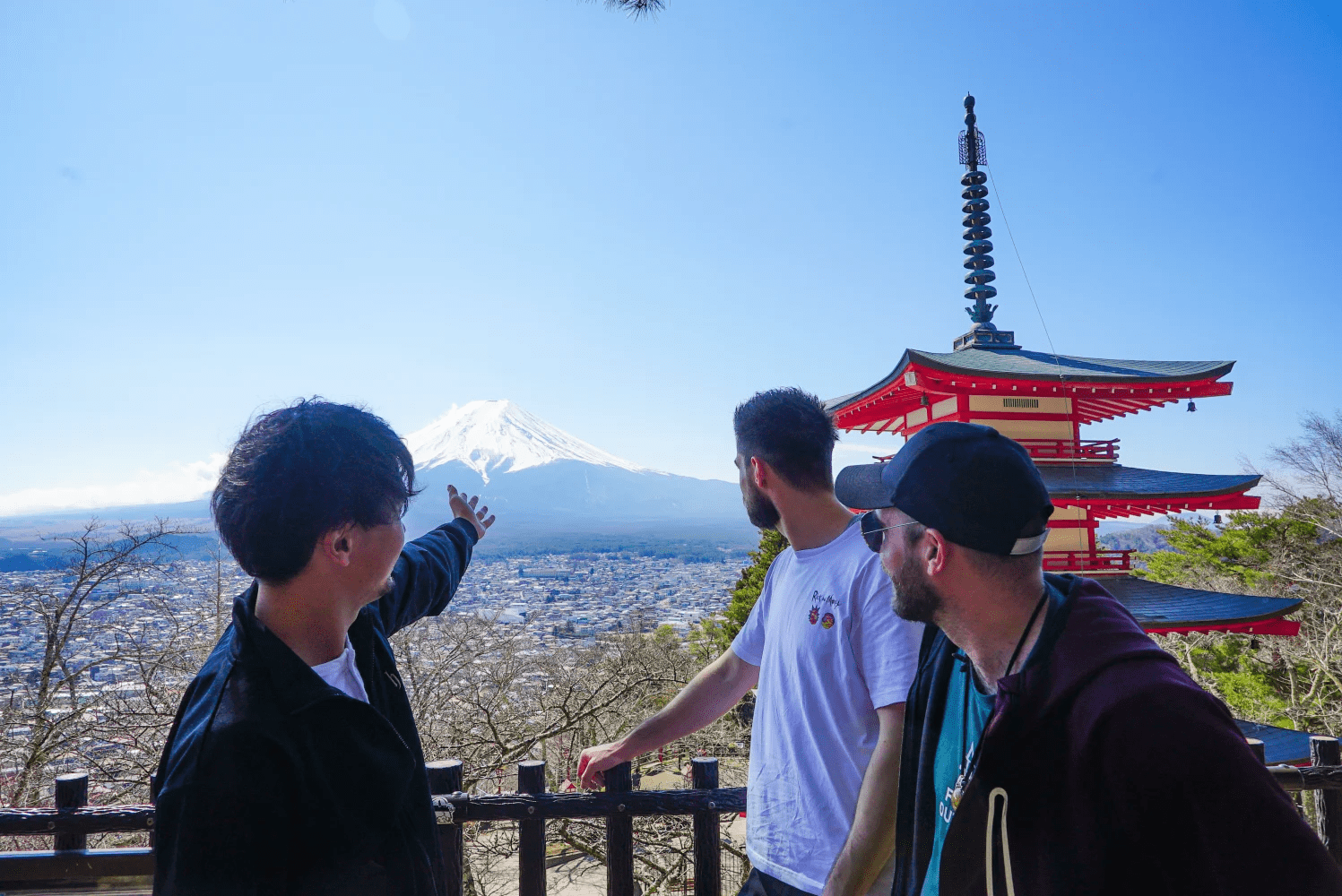
To enjoy a deep journey of Mt. Fuji that cannot be experienced elsewhere, a private day trip tour from Tokyo is recommended.
Visit a wasabi farm with over 100 years of history, hidden waterfalls, and ancient shrines to explore the unknown charms of Mt. Fuji. Enjoy local cuisine at the foot of Mt. Fuji for lunch.
Additionally, you'll visit must-see scenic spots such as Oshino Hakkai, Torii in the sky, and the five-storied pagoda. This exclusive tour allows you to enjoy the natural beauty of Mt. Fuji and its rich cultural landscape.
Meeting point: Your accommodation or Shinjuku
Tour area: Around Mt. Fuji
Start time: 8:00
Kashima Jingu Shrine
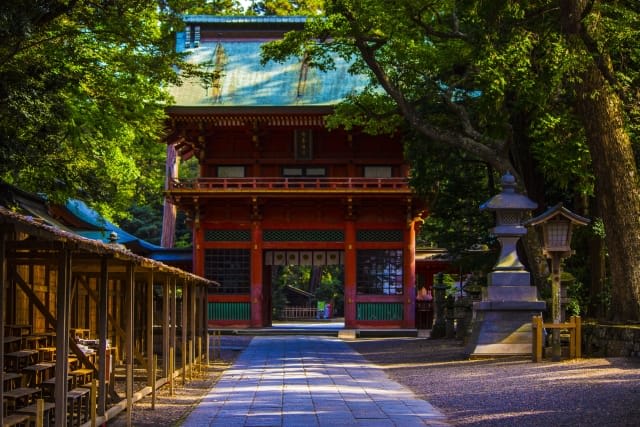
Kashima Jingu Shrine, located in Kashima City facing the Pacific Ocean in the southeastern part of Ibaraki Prefecture, is considered the most prestigious shrine in the prefecture. As you explore Tokyo Spiritual Hotspots 2026, this shrine should be at the top of your itinerary.
The shrine has deep connections to Japan's founding and martial arts deities, and has historically received reverence from the Imperial family and shogunate houses. It is worshipped as the deity of Sumo, Japan's national sport, and also as the god of earthquakes.
The myth of the deity's confrontation with a giant catfish that causes earthquakes when it thrashes about is widely known throughout Japan.
Kashima Jingu Shrine preserves numerous valuable structures designated as Important Cultural Properties of Japan, including one of Japan's three great vermilion-painted roumon gates and a colorfully decorated main hall.
Additionally, the forest area called Juso spans approximately 700,000 square meters, forming a deep forest where precious plants flourish. You can fully enjoy forest bathing here as well.
Address: 2306-1 Miyachu, Kashima City, Ibaraki Prefecture
Business Hours: 24 hours
Closed: Never
Phone Number: 0299-82-1209
Official Website: https://kashimajingu.jp/
